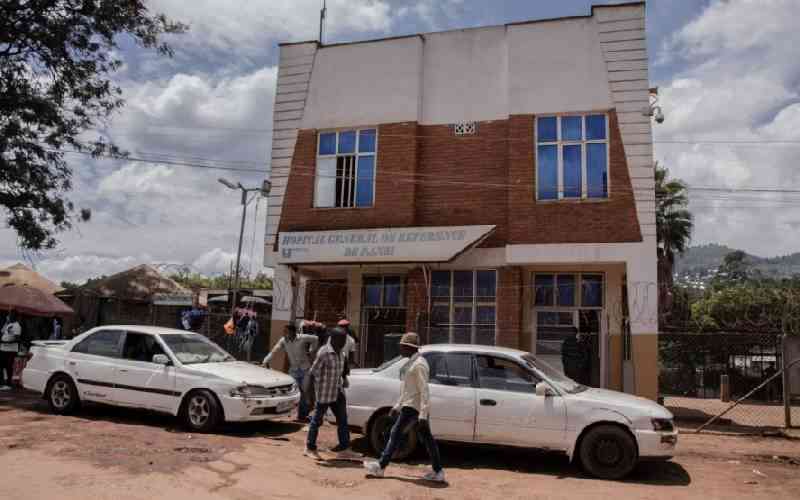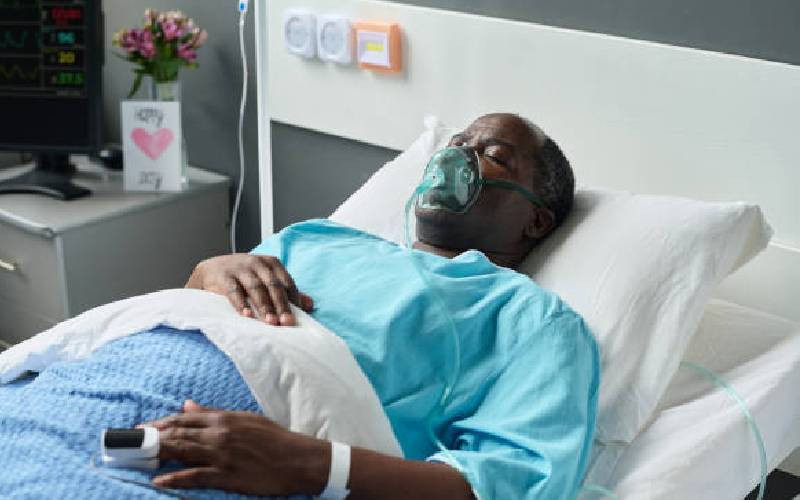The coronavirus pandemic has brought with it another epidemic – an increase in mental health issues. Mental health experts are saying that they have witnessed a significant increase in the number of people seeking help over the issues.
“We have had a counselling line for a long time, the Employee Assistance Programme, but we have seen the levels of stress and anxiety really going high because of the circumstances of Covid-19. The increase in the number of calls has been so high that we had to increase our capacity to handle them,” says Mary Wanjiku, Assistant Wellness Manager at Minet Kenya Insurance.
Minet and Absa bank launched a Covid-19 wellness care line for the public to use for psychosocial support through the USSD code *202*04#.
“One of the effects of this pandemic is rising levels of psychological distress, anxiety and stress levels, particularly for patients, health workers and the many people who are in quarantine. For most people, the outbreak has changed the way they work, socialise, travel, exercise, shop - basically the way they live. The extensive news coverage has also caused uncertainty, leaving many people feeling anxious, scared and depressed,” says Caroline Ndungu, Marketing and Corporate Relations Director at Absa Bank Kenya.
While the line was initially targeted at health workers, people in isolation, people in quarantine, Covid-19 responders and relatives to Covid-19 patients, the counsellors have been receiving calls from people not directly affected.
“Since the information went public, we have been receiving calls from people who are just at home. That tells you that the impact on people who are not directly affected is huge. People don’t have money and they are very stressed out and anxious because they don’t know about tomorrow,” says Wanjiku.
The issues coming up include anxiety over loss of income, fear of getting or that they have the disease, working long hours and people looking for Covid-19 information, marital problems and insomnia.
Muthoni Gathecha, a consultant psychologist, has been working with some of these people, and she said that anxiety has become a major issue.
“I am talking to a lot of people in the corporate world. From the groups and organisations that I’m talking to, there is a lot of anxiety. When the pandemic first came, people thought it was going to be here for a short while, but this is the third month and it seems there is no light at the end of the tunnel,” she says.
Many are also worried that the country may not be able to handle the pandemic, given how hard it has hit the developed world. There is also a lot of insecurity especially in terms of work, with people concerned that their jobs will not last.
Another issue that is coming out is Kenyans being in denial.
“What is happening with Covid-19 it’s like we are grieving. People are feeling loss of their freedoms because of the curfew, loss of the ability to travel outside their county, loss of the ability to go and worship at their place of choice. Just like losing a relative, people are going through grief. Because of this, some people are in denial and have not accepted that Covid-19 is a reality.
“That is why you see people indulging in some risky behaviour, like people having house parties because they feel they can’t get it. They haven’t accepted the situation, and when you don’t accept it, the higher the probability of your vulnerability and susceptibility to disease,” says Gathecha.
The confinement is causing tension in homes, with people locked in their houses with nowhere to go. As a result, gender violence is on the increase.
“People used to go to work as an escape and use home as an escape from work. But now being together in a confined space and feeling suffocated, people are feeling very uncomfortable in that situation,” she says.
Stay informed. Subscribe to our newsletter
Increased substance abuse is also becoming a problem and may soon be an epidemic in itself. “We now have people who are drinking more and indulging in other substances, which gives them some temporary comfort, but in the morning they still can’t leave the house. So there is a feeling that at the end of this we might have developed a nation of people who are alcoholics or drug users because people are using that as their temporary comfort,” says Gathecha.
High risk individuals
Isolation fosters depression, so people who live alone are at high risk of developing mental issues now. Common symptoms would be restlessness, oversleeping (hypersomnia), not sleeping enough (insomnia), loss of appetite, excessive eating, irritability, lack of interest in what is going on around them and lethargy.
Gathecha says the most vulnerable age are young adults, people under the age of 25. “These are people who have high energy and now that energy is confined to the home. They have (a lot of) hormones within their body and they don’t want to understand the situation. That is when you might have a nation growing up of people who are not steady,” she says.
People on the frontline like nurses, doctors and customer care are also at high risk, in addition to top management and people in executive positions.
“They have to make decisions which may not be comfortable for the workforce. There is lot going on in their minds, like, ‘Do I reduce the staff? What happens to their families? Do I deduct salaries? I know some who are losing sleep over having to make such decisions,” says Gathecha.
What to do
Gathecha maintains that the key way of getting through it is thinking positive.
“I look at it this way: Every cloud has a silver lining. I am looking at Covid-19 as the cloud. So I ask people what their silver lining is. What are you going to do during this time to make the best of a bad situation? No one was prepared for a pandemic. But as we are trying to live in the here and now, try and stretch your money as possible. The future is unpredictable,” she says.
She also advises that one takes care of oneself by eating properly and exercising even in confinement, and to try as much as possible to get enough sleep. One can also minimise on social media and television and be careful about what one takes in.
“Ensure you have a support system; someone you can talk to. In this day and time of technology, you can FaceTime, WhatsApp and Zoom call. You can be in touch with what is happening with people. You may not be able to solve your problems but you have shared and you may get some ideas on how you can improve your situation,” she says.
Developing resilience
Developing a degree of resilience is also key to handling the pressure that comes with the times.
“In 2007, when we had the post-election violence, people thought the country would never be stable again after what we saw. We managed to bounce back, yet we were not prepared for that either. Take cognisance of that and ask yourself what you can do now that we are in this predicament,” she says.
The working culture has also meant that people who live together don’t really know each other, as people leave the house early and come back late.
“Some have been together for ten years but hardly know each other. That is what is causing some of the conflict, with some wondering, ‘Is this the person I walked down the isle with?’ People can use this time to get to know each other,” says Gathecha.
She says providing a support system would go a long way in helping someone going through anxiety and depression during the pandemic.
“Help them feel like they belong, that you are all going through it together as a family. You can use this time to develop a closer bond. Adult children can even move back home for the time being,” she says.
“At the end of this, I would urge people to think about what their take home would be. With all the darkness that is going around, what have to done to make it brighter, to make it easier to cope?” she poses.
 The Standard Group Plc is a
multi-media organization with investments in media platforms spanning newspaper
print operations, television, radio broadcasting, digital and online services. The
Standard Group is recognized as a leading multi-media house in Kenya with a key
influence in matters of national and international interest.
The Standard Group Plc is a
multi-media organization with investments in media platforms spanning newspaper
print operations, television, radio broadcasting, digital and online services. The
Standard Group is recognized as a leading multi-media house in Kenya with a key
influence in matters of national and international interest.
 The Standard Group Plc is a
multi-media organization with investments in media platforms spanning newspaper
print operations, television, radio broadcasting, digital and online services. The
Standard Group is recognized as a leading multi-media house in Kenya with a key
influence in matters of national and international interest.
The Standard Group Plc is a
multi-media organization with investments in media platforms spanning newspaper
print operations, television, radio broadcasting, digital and online services. The
Standard Group is recognized as a leading multi-media house in Kenya with a key
influence in matters of national and international interest.








